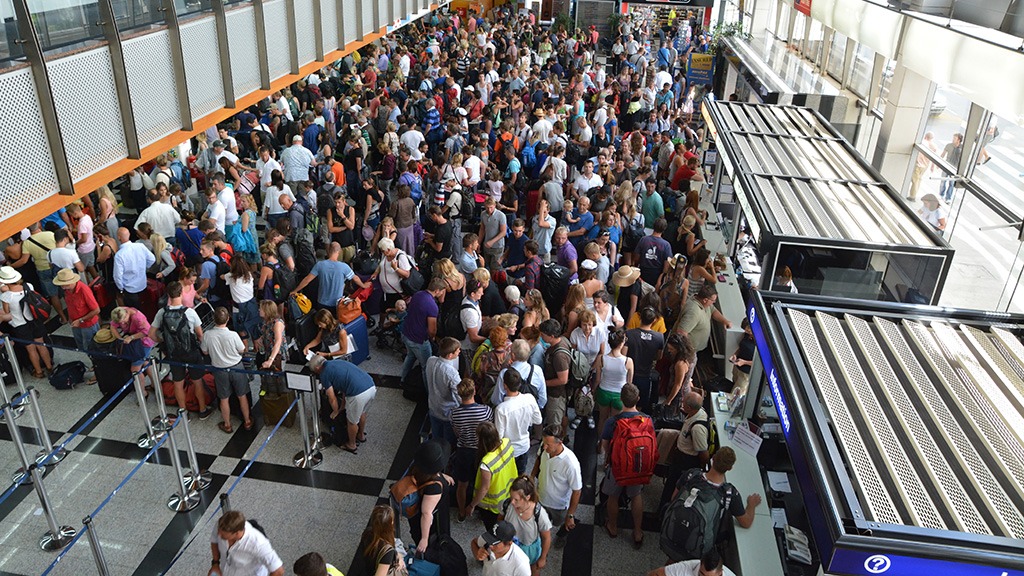Several European airports, including Heathrow, are bracing for a second day of disruption after a cyber-attack on a shared airline check-in system knocked out operations used by dozens of airlines.
Heathrow confirmed that delays and cancellations from Saturday will continue into Monday, as many airlines at the UK’s busiest airport are still operating with limited systems or manually. Passengers are advised to verify flight statuses and arrive at airports well ahead of their scheduled departure times.
The affected system is Muse, a software suite operated by Collins Aerospace, which enables multiple carriers to share check-in desks and boarding gates. The outage has forced airports like Brussels and Berlin to revert to manual check-in and boarding, creating long queues and scaling back schedules.
Brussels Airport has asked carriers to cancel approximately half of their departing flights on Monday due to the continued inability of Collins Aerospace to deploy a secure version of the system.
Heathrow said “the vast majority of flights have continued to operate” despite the disruption, though nearly half of departures experienced delays on Saturday. By Sunday, the number of delays had reduced but remained higher than normal.
Airlines including British Airways and Virgin Atlantic are using backup platforms to process check-ins, while some airports like Berlin and Dublin are encouraging travellers to use self-service or online check-in options where possible.
UK authorities are taking the disruption seriously. The National Cyber Security Centre is working with Collins Aerospace, the Department for Transport and law enforcement to assess the breach.
Transport Secretary Heidi Alexander said she is following developments closely and receiving regular updates. The European Commission has confirmed it is monitoring the situation and assessing the impact, though it noted there is no indication the incident is “widespread or severe” beyond the affected airports.
Analysts say this event underscores how reliant modern aviation is on shared IT systems — and how quickly that dependence can become a vulnerability. With air travel volumes up and tight schedules, even a short outage in a crucial system can have outsized ripple effects across the network.
Airports and airlines are likely to accelerate investment in redundancies and cybersecurity safeguards, and regulators may come under pressure to demand more resilience measures in shared software platforms.


